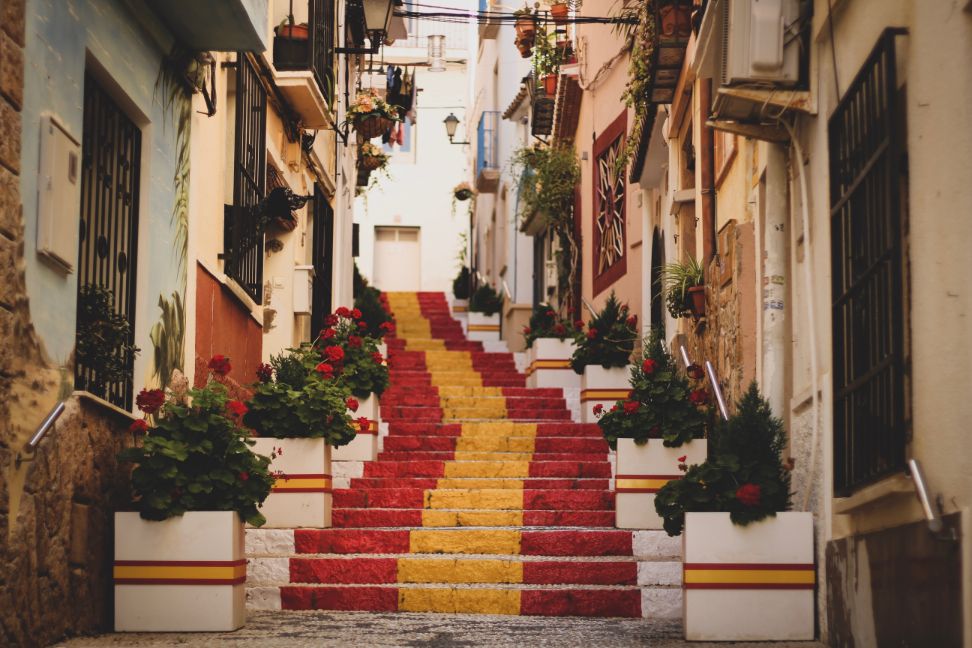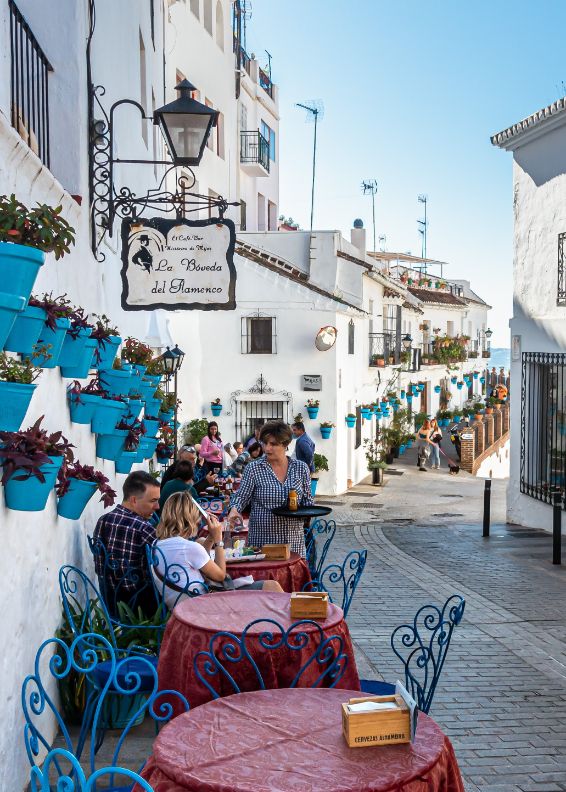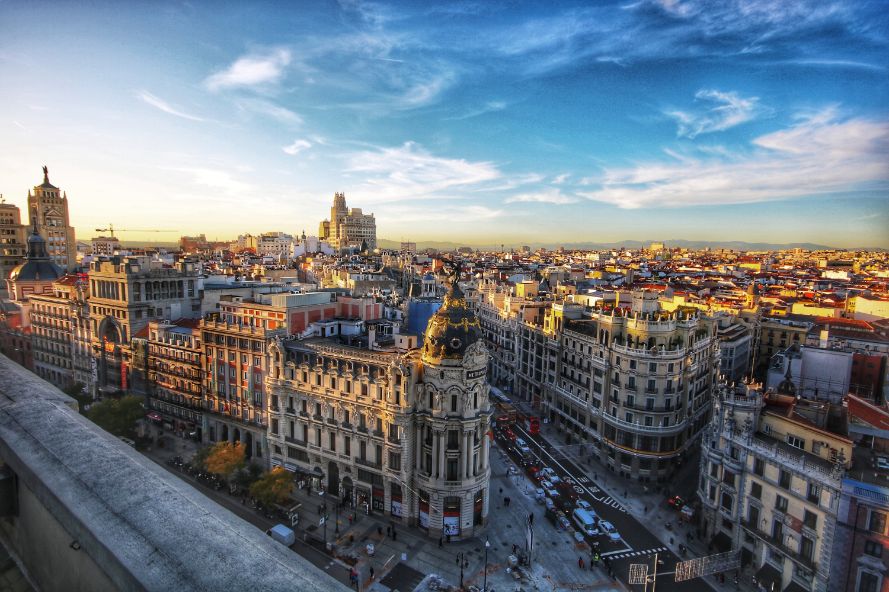At the westernmost point of the Mediterranean Sea, Spain and Portugal share the Iberian Peninsula. In Spain, there aren’t many violent crimes, and people are typically very hospitable to visitors. But there is a growing problem with street crime and con artists, especially in Barcelona. How can one travel in Spain safely then? To find out more about safety in Spain, please read this article.
Political Situation
Regarding demonstrations in Spain, you should abide by the recommendations of the police and local authorities.
Due to recent political developments, there have been significant crowds of people and demonstrations in some areas of Barcelona and other regions of Catalonia. Violence has sometimes broken out during protests, and demonstrators have wrecked property and snarled traffic.
It’s possible for more gatherings and protests to occur, and peaceful protests run the risk of becoming violent. Stay alert, heed local authorities’ instructions, and leave right away for a safe place if there are any indications of disorder if you’re in an area where protests are taking place.
Crime
The majority of trips to Spain are trouble-free, but you should be aware of the possibility of street crime, particularly thieves using deception tactics. With a focus on cash and passports, thieves frequently operate in groups of two or more people. Don’t keep all of your valuables in one place, and keep a copy of your passport—either a photocopy or a scan—somewhere secure.
When picking up or checking in luggage at the airport, while booking a rental car, and while traveling, exercise extra caution to protect passports, cash, and other valuables.
Thieves impersonating police officers may approach tourists in some tourist hotspots and request to see their wallets in order to identify them. If this occurs to you, confirm the officers’ legitimacy and, if necessary, produce another form of identification. Genuine police officers never inquire about a person’s wallet or purse.
Although they are uncommon, personal attacks, including sexual assaults, do happen occasionally and are frequently committed by other British citizens. Be cautious of the potential use of “date rape” and other drugs, such as “GHB” and liquid ecstasy. Purchase your own drinks and ensure they are never hidden from view to avoid being spiked.
Drugs and alcohol can impair your ability to be vigilant, maintain control, and be aware of your surroundings. If you drink, be aware of your limits and keep in mind that beverages served in bars are frequently stronger than those sold in the UK. Stay with your friends and don’t go off on your own with strangers.
A good security system should be in place at your lodging, and you should lock all windows and doors at night or when you aren’t there. Speak to your tour guide or the property owner if you’re a visitor and you have concerns about the safety of your lodging.
Make sure you are aware of the location of the closest police station and the emergency services phone numbers.
Vehicle Crime
‘Highway pirates’ who prey on foreign-registered and hired cars, particularly those pulling caravans, should be avoided. Some will (forcibly) try to get you to stop by saying there’s a problem with your car or that you’ve hurt theirs. If you decide to stop to inspect your/their vehicle, do so in a well-lit public area, such as a service station, and be extremely wary of anyone offering assistance.
When driving, be on the lookout for approaches from phony police officers riding in unmarked cars. Police officers will always be in uniform and carry official identification when dealing with traffic-related issues.
This includes officers who are dressed plainly. Unmarked police cars typically have blue flashing lights and a flashing electronic sign that says Policía (Police) or Guardia Civil (Civil Guard) on the rear window. Genuine police officers won’t ask for your bag, wallet, or purse—they’ll just want to see your identification.
Reporting Crime
Call 112 in case of any emergency.
To file a police report, including to report stolen property and lost or stolen passports, go to the closest Policia Nacional, regional police station (such as Ertzaintza in the Basque Country, Mossos d’Esquadra in Catalonia, or Policia Foral in Navarre), or Guardia Civil station.
In some Spanish cities, the Town Hall and National Police operate a “Foreign Tourist Assistance Service” (SATE – Servicio de Atención al Turista Extranjero) where visitors from other countries can report crimes in a number of languages, including English.
For minor offenses like a car or bag theft, you can also report a crime online or call a dedicated English-speaking police line while you’re in Spain at +34 90 210 2112 from 9 am to 9 pm seven days a week.
Be aware that you must go in person to the nearest police station to report any violent crimes or sexual assaults. The police report must be kept if you had property stolen for insurance purposes.
Falls From Height
As a result of falls from heights, including balconies, there have been a number of very serious accidents (some fatal). British nationals have been involved in a large number of these incidents, many of which have devastated the victims and their families.

Avoid taking unnecessary risks near balconies and other high places, especially if you are intoxicated or high. If you are discovered to be acting recklessly, you risk being kicked out of your hotel in some areas.
As soon as you get there, you should become familiar with the layout of your hotel and apartment building. If you’re staying in a room with a balcony, always heed the safety instructions of your hotel and/or tour operator and keep an eye out for friends who might be in danger.
Some local councils will find people who are found acting recklessly on balconies. If you were inebriated or under the influence of drugs or alcohol when the incident occurred, your travel insurance might not be able to compensate you.
Festivals And Concerts
If you’re going to a festival or major concert, be mindful of the local laws and customs and take extra precautions with your valuables.
Outdoor Activities
Swim in the sea with caution. Some beaches, particularly those near the Spanish Islands, might have powerful undercurrents. Most of them use a flag system. Make sure you are familiar with the procedure before swimming and heed any cautions (a red flag indicates that you should not enter the water).
If there aren’t any flags, signs, or lifeguards, you should be extra cautious. If there are jellyfish, heed local advice.
Swimming at beaches near rivers is not recommended. A dive into uncharted water should be avoided because it may contain hidden rocks or be dangerously shallow.
Be cautious when strolling along uninhabited beaches near the water because some waves can be unpredictable in size and come in farther than anticipated with strong undertows.
Some regions of Spain experience very rapid temperature changes. When organizing a hike or stroll, exercise extra caution by checking the local weather reports for alerts of extreme heat or cold.
If you are involved in an accident while mountaineering, canoeing, potholing, or climbing, or if you get lost in the mountains or another area requiring mountain rescue, dial 112 for the emergency services or 062 for the Civil Guard.
Road Travel
Licenses And Documentation
In Spain, you must be 18 years old or older to operate a vehicle larger than a 125cc motorcycle, and you must be at least 16 years old to operate a smaller motorcycle up to 125cc. At all times, you must have a current driver’s license, proof of insurance, and identification.
Driving in Spain is permitted with a full, current UK driver’s license (provisional licenses are not accepted).
Always keep your certificate on hand if you are using UK insurance in case you are stopped. This certificate is typically only good for stays of under three months; if your stay will be longer, get in touch with your insurance provider.
Driving A British Car Abroad
Driving your car outside of the UK might require a UK sticker. In place of GB stickers as of September 28, 2021, are UK stickers.
Driving Regulations
Driving happens on the right. Driving regulations and traditions differ from those in the UK.

In the event of an accident or breakdown, you are required to carry two red warning triangles that must be placed 50 meters in front of and behind the vehicle, respectively. To change a wheel, you need a spare and the necessary tools.
Wearing a reflective vest is required at all times when leaving your car, whether it be for maintenance, an accident, or to wait for emergency services. Failing to do so could result in a steep fine.
Alcohol-related driving is prohibited in Spain. Police frequently conduct roadside drug and alcohol checks. There are severe fines, license revocation, and jail time as penalties.
For a number of traffic offenses, such as exceeding the speed limit, police may issue fines right away. The fine will be reduced by 50% if you accept it and pay it within 20 days.
All passengers in the front and back seats must wear seat belts. A child safety seat that has been approved must be used and the child must be in the back seat if they are under the age of 12 or 1.35m tall, as required by law.
Only when the rear seats are already occupied by other kids or when there are no rear seats in the car are kids allowed to ride in the front seat. When reserving the car, be sure to mention that you need a child seat so the rental car agency can provide one.
Both improper child seat installation and failure to buckle one’s seatbelt may constitute serious offenses that carry hefty fines.
All motorcyclists, including those who operate mopeds and quads, are required to wear a safety helmet and other protective gear. A fine may be assessed for failure to wear one, which is a serious offense.
Even if you have pulled over to the side of the road, using a mobile phone while driving is prohibited. You must be entirely clear of the road. However, you are permitted to use a mobile phone with a fully hands-free unit. Using an earpiece is also prohibited.
Vehicle Restrictions
In order to reduce exhaust emissions during times of extreme air pollution, some Spanish cities have implemented emergency anti-pollution protocols. Access for vehicles is limited and speed limits are implemented when the device is activated. As per local authorities’ instructions, proceed.
Both Madrid and Barcelona have permanent low emission zones that have strict exhaust emission requirements for all vehicles, including those with foreign registrations, in order to be allowed entry. When a vehicle complies, the Spanish Traffic Authority (DGT) will issue it an eco-sticker or an equivalent, which governs its ability to move through and park in the area.
Depending on the access requirements, foreign-registered vehicles may need to register or obtain approval from the local authorities for their exhaust emissions in order to enter the zone.
A penalty notice will be given for unregistered vehicles that do not comply with emission standards. Check which access options are available to visitors if your hotel or place of lodging is situated in a low emission zone (for example, car park, one-day passes, etc.).
Taxis
Use only taxis that are legally registered or licensed, or trusted, well-known transportation providers. Different cities in Spain have different licensing laws, and in some places reservations are necessary.
There are fines of up to 600 euros for passengers who are found using illegal taxi services. Ensure that you reserve your taxi or airport transfer through a legitimate company.

Timeshare And Holiday Clubs
Spain has a long history of timeshare ownership, with a large number of reputable companies, agents, and resorts conducting themselves ethically and legally. However, there are also a lot of dishonest businesses, some of which make claims about offering different incentives but rarely follow through.
Common Scams In Spain
Recognizing typical scam strategies will help you be prepared before you are the target. Here are a few scams to be aware of in Spain. The misdirection theme is used in most scams as a variation.
- Women offering flowers are looking to either extort a few euros from you or pocket as you try to fend them off
- Avoid accepting any offers to clean bird droppings off your back. While they “help” clean the mess, they’ll try to pickpocket you
- You are kept still and distracted by delays at Metro doors, escalators, and bus lines so they can look through your bag. This is often paired with a “divide and conquers” technique – so don’t let anyone get between you and your friends or family in this situation.
Be on the lookout for phony undercover police officers who flash a fake ID while attempting to intimidate or mislead travelers with a charge or a story. They’ll ask for your documents and try and get you to hand over your wallet for “verification”.
In Spain, dealing with tourists would be extremely rare. If they did, they would never ask for your wallet and would only request your documents.
If you run into any counterfeit cops:
- Don’t be confrontational, as they have been known to resort to violence
- Politely ask to see their ID again, and if they persist, ask to walk to the nearest police station before handing over anything
- Never get into a car with them
Tips For Business And Leisure Travelers
- Don’t wear expensive jewelry or watches outside.
- When possible, avoid going alone, especially late at night.
- Whether it’s day or night, stay in the city’s well-lit, busy areas.
- Be cautious and vigilant about personal safety.
- Keep your cash and credit card carryings to a minimum.
- A clear copy of your passport should always be carried. Leave extra credit cards, cash, and any personal documents (such as your passport) in the safe in your hotel room, or ask the front desk to store them in the safe while you are away.
- Put your cash and credit cards in a place that is difficult to access, like a money belt around your waist.
- Carry your cash and credit cards separately, with some in your wallet, some in your purse, and some in your backpack. Don’t keep all of your valuables, cash, and credit cards in a single bag, wallet, or backpack.
- Put your money into different pockets so you won’t have to take out a big wad of cash every time you need to make a purchase.
- Till you’re prepared to cash them, wait to countersign traveler’s checks.




